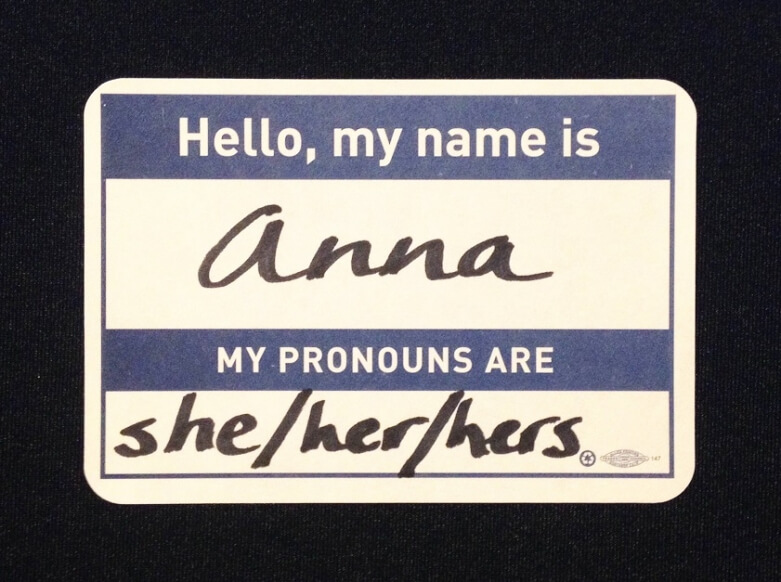What’s in a Pronoun?
Page Media

“Hello, my name is Anna and my pronouns are she, her, and hers.” That has now become my standard greeting at meetings and events. It wasn’t something that happened naturally, but with a little practice and intention, it became a habit.
As an Organizer with the ACLU of Northern California, I spend much of my time advocating for schools that are welcoming and inclusive to transgender students. Part of that advocacy includes talking to people about gender, and educating people about transgender issues.
Being an ally
I’m a cisgender person. That means that my gender identity aligns with the sex I was assigned at birth.
Because I do not have the lived experience of being transgender, my advocacy around transgender issues is defined and limited by my identity as an ally. My goal is to use my cisgender privilege to talk to other cisgender people about gender, how to create more inclusive environments, and how to actively challenge transphobia.
All people are impacted by gender and have identities that need to be affirmed and respected, but many cisgender people do not need to worry about having our gender identities recognized. We have the privilege of not having to think much about our gender or about people respecting our names and pronouns.
That is not the case for many gender nonconforming and transgender folks. Many transgender people fight on a daily basis to have their names and pronouns respected, which is no small or trivial feat. Names and pronouns shape how we are viewed in the world and are important pieces of our identities.
Doing the work, step by step
Fighting transphobia takes proactive work. Creating spaces that affirm people’s identities takes proactive work. While some of the work I do focuses on structural and systemic changes, it is also important to shift cultural norms and practices.
In the course of our recent advocacy, the ACLU of Northern California took a hard look at our own internal policies and practices and we realized that we needed to make some changes. This has been and will continue to be an ongoing process of action and reflection. We believe that it is essential for us, as an organization, to continue to push ourselves to grow and live out the values that we advocate for externally.
One small way in which the ACLU of Northern California is changing our own internal norms is by designing a new nametag for meetings and events that includes a specific space for people to write in their pronouns. This may appear to be a small thing. And in some ways, it is. There is so much work to be done. But in the words of the ACLU’s Chase Strangio, “how we talk about trans people sets the tone for the world in which trans people live.”
Creating spaces and practices that affirm people’s names and pronouns is a step towards greater inclusion. It creates room for people to respect one another and be our full selves. It also provides the opportunity for allies to talk to other cisgender people about pronouns, transphobia, and the importance of not making assumptions about people’s identities. While this may appear as a minor change, these brief interactions can serve as an entry point for people to think about their individual practices and we can build upon these moments to create systemic changes and larger cultural shifts.
Learn more
Since using pronouns on nametags may be a new practice for many people, we have created a frequently asked questions page with additional information to help with this change in practice.
